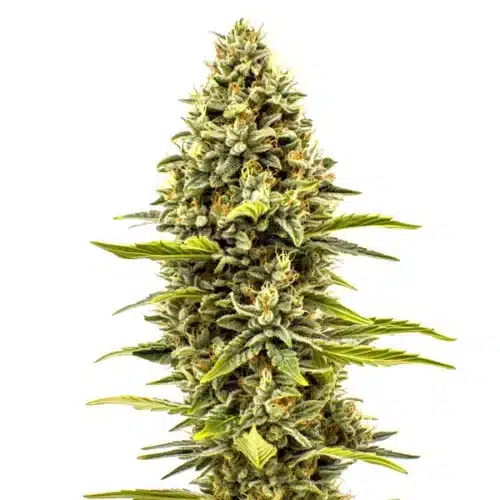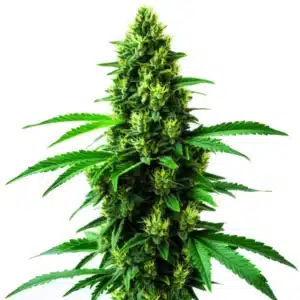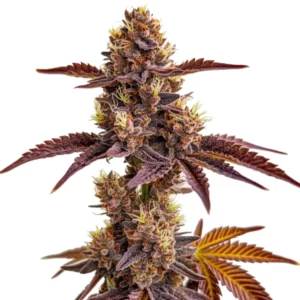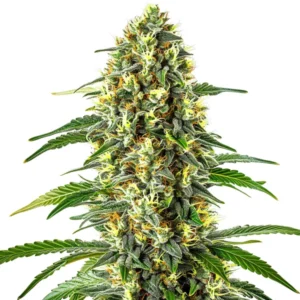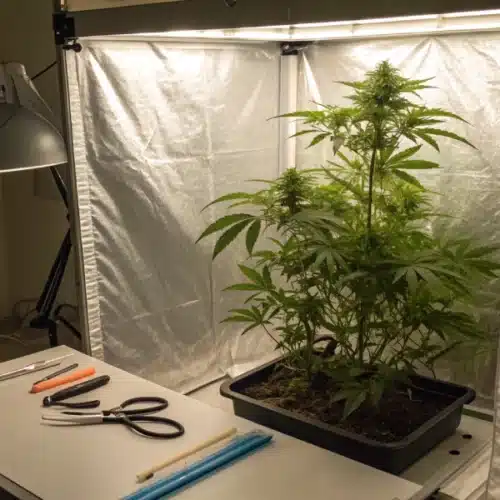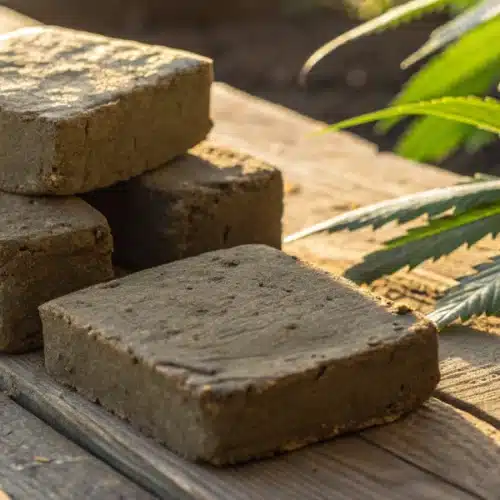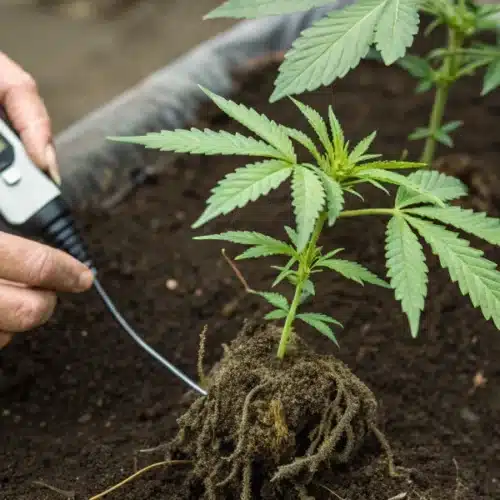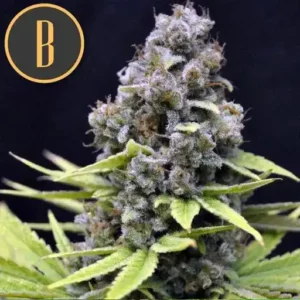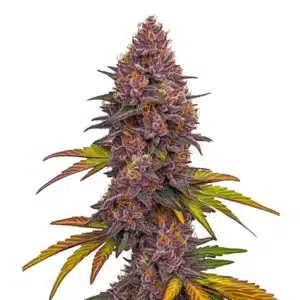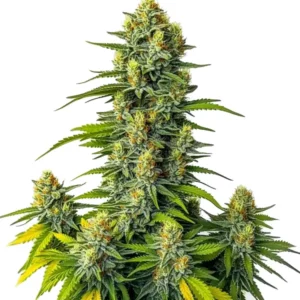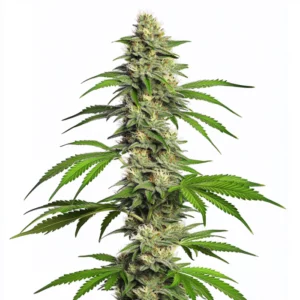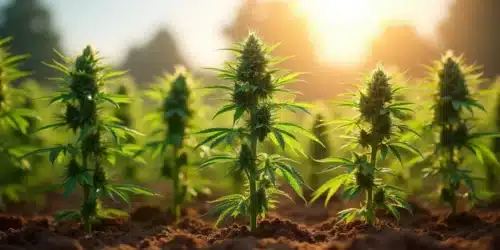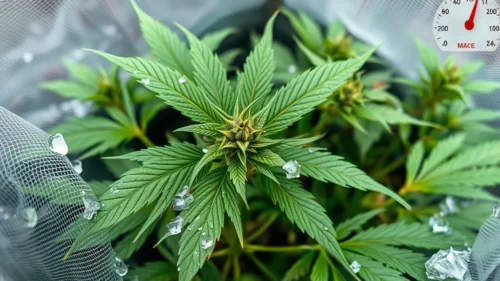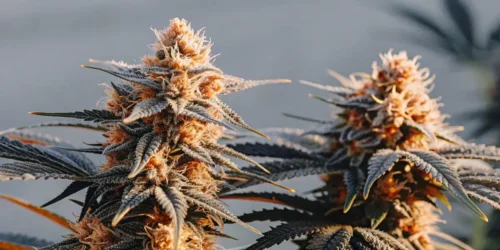Cheese Autoflower Strain Description
Cheese Auto is a highly sought-after cannabis strain known for its strong aroma, fast flowering time, and balanced effects. As an autoflowering variety, it provides an easier grow for beginners, combining the legendary Cheese genetics with the benefits of autoflowering cannabis. The strain is a cross between Cheese and Critical Mass Auto, creating a mostly Indica hybrid with compact plants that grow up to 4.92 feet tall (1.5 meters).
Recommended Strains
Cheese Auto
 THC: 10% - 15%
THC: 10% - 15% Type of seed: Autoflowering
Type of seed: Autoflowering Phenotype: Mostly Indica
Phenotype: Mostly Indica Day to flower: 10 - 12 weeks
Day to flower: 10 - 12 weeks
This strain offers medium THC levels, ranging from 10% to 15%, and low CBD levels, typically around 0.5%. The buds are dense and sticky, covered in a layer of trichomes, giving them a frosty appearance. With flavors that mix the pungent and cheesy notes Cheese strains are famous for, alongside earthy and sweet undertones, Cheese Autoflower delivers a pleasant and complex flavor profile.
The effects of this strain are uplifting and energetic, making it suitable for both daytime and evening use. It offers a balance of creative, euphoric, and relaxing effects, ideal for medical users looking for relief from arthritis, depression, or fatigue. Additionally, it’s a great strain for beginner growers due to its resistance to pests and ease of cultivation.
Promos & Deals
Environmental Requirements for Growing Cheese Autoflower
Cheese Autoflower thrives in a temperate climate, similar to many other autoflower strains. Its short height makes it ideal for indoor grows, though it can also flourish outdoors in regions with plenty of sunshine. For indoor growers, maintaining temperatures between 70-80°F (21-27°C) during the day and slightly cooler at night is crucial for optimal growth.
Humidity should be kept in the range of 50-60% during the vegetative phase and reduced to around 40-50% during the flowering stage. This helps prevent mold, especially in the dense buds that Cheese Auto produces. Good airflow is important, so setting up oscillating fans and ensuring proper ventilation will contribute to a successful grow.
Lighting is a key factor in growing Cheese Strain indoors. High-quality LED grow lights or HPS lamps are recommended to ensure that your plants get sufficient light during their growth stages. Since Cheese Seeds is an autoflowering strain, it doesn’t depend on light cycles to switch from vegetative growth to flowering. However, providing 18-20 hours of light per day will maximize its potential.
Setting Up The Growing Cannabis Space
Indoor Cannabis Cultivation
For indoor cultivation, Cheese Autoflower requires a well-organized growing space. Using a grow tent or dedicated grow room with reflective walls (such as Mylar) will help optimize light distribution. An efficient ventilation system is crucial for maintaining optimal humidity and temperature levels, and installing a carbon filter can help manage the strong, pungent smell Cheese Auto is known for.
Choosing the right growing medium, whether it’s soil or hydroponic systems, is essential. Most beginners find soil the easiest option, as it provides a buffer against nutrient imbalances. Ensure proper drainage, as autoflowers can be sensitive to overwatering. Use pots with drainage holes and consider fabric pots to allow more air to reach the roots.
Outdoor Cannabis Cultivation
When growing Cheese Autoflower outdoors, select a location that receives plenty of sunlight throughout the day. It can withstand cooler temperatures, but will perform best in mild, sunny climates. Planting in large containers gives more control over soil conditions and allows for better root expansion, improving the overall health of the plants.
Since Cheese Strain grows to a manageable height, outdoor growers can place it in a discreet location. However, due to its strong smell, it may attract unwanted attention, so consider using odor control measures or planting near aromatic herbs to mask the scent. Additionally, outdoor growers should protect the plants from strong winds and ensure good air circulation to reduce the risk of mold.
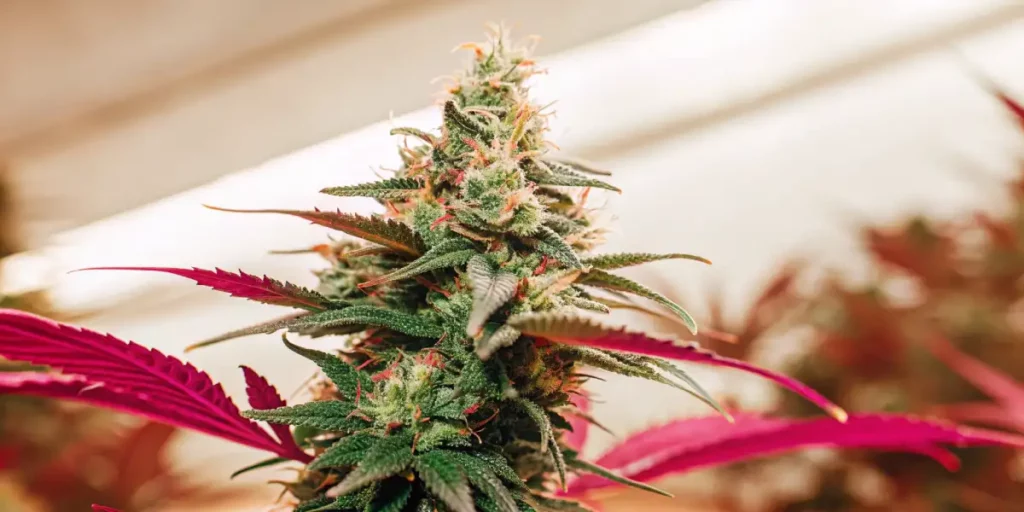
Propagation and Germination of Cheese Autoflower
The first step to a successful grow is germinating your Cheese Autoflower seeds correctly. Here’s how to ensure a high germination rate:
1. Begin by soaking the seeds in water for 24-48 hours or placing them between damp paper towels. Keep the temperature between 70-85°F (21-29°C) and ensure darkness for optimal results.
2. Once the seeds develop taproots, transfer them carefully into a light, well-draining growing medium. Using a seedling tray or small pots filled with pre-moistened soil ensures that the young plants have a good start.
3. Provide gentle airflow and maintain humidity around 60-70%. Place them under indirect light for the first few days, gradually increasing the light intensity as the seedlings develop. This will prevent them from stretching and becoming too leggy.
4. Transplant the seedlings into their final containers once they’ve developed a few sets of true leaves, ensuring that they have enough space to grow strong roots.
Vegetative Phase of Cheese Autoflower
During the vegetative phase, Cheese Autoflower develops its structure, leaves, and branches, preparing for the flowering stage. Since it’s an autoflower strain, the vegetative phase lasts only a few weeks, but maximizing growth during this time is key for a successful harvest.
Lighting: Provide 18-20 hours of light per day. High-quality LED or HPS lights are ideal for this phase, promoting healthy leaf and branch development.
Nutrition: Cheese Auto benefits from a balanced nutrient formula rich in nitrogen, which supports strong leaf growth. It’s important to follow the manufacturer’s feeding schedule to avoid nutrient burn or deficiencies.
Watering: Allow the top inch of soil to dry out between waterings to prevent overwatering. Autoflowers are sensitive to excess water, so maintaining a light watering schedule is crucial.
Flowering Phase
The flowering phase is where Cheese Strain truly shines. With a flowering time of around 10-12 weeks, growers can expect dense, trichome-coated buds by the end of this phase. The smell becomes much stronger during this period, so make sure your ventilation and odor control systems are running efficiently.
Lighting: While Cheese Autoflower doesn’t rely on light cycles to flower, maintaining 18-20 hours of light will ensure that the buds develop fully. Ensure that your lights are positioned correctly to avoid light burn but still provide the necessary intensity.
Nutrition: Transition from nitrogen-heavy nutrients to a phosphorus and potassium-rich bloom formula. This will promote bud formation and enhance resin production, which directly affects the potency of the final product.
Cannabis Fertilization and Nutrition
Proper nutrition is essential for maximizing the growth and yield of Cheese. Autoflower strains are generally less demanding than photoperiod strains, but they still need a balanced nutrient regimen to thrive.
Fertilizers: Use a well-balanced cannabis-specific fertilizer that contains nitrogen, phosphorus, and potassium (NPK). Follow the feeding instructions provided by the nutrient manufacturer and adjust accordingly based on your plant’s growth stage.
Supplements: During the flowering phase, consider adding bloom boosters or organic additives to enhance the flavor, potency, and resin production of Cheese Seeds. Be cautious not to overfeed, as autoflowers are more sensitive to nutrient burn than photoperiod strains.
Pest And Disease Control for Cannabis Growing
Cheese Autoflower is a relatively resilient strain, but growers should still be mindful of common pests and diseases such as spider mites, aphids, and mold. Regular inspections and preventive measures are crucial to maintaining healthy plants throughout the grow cycle.
Harvesting and Curing for Cannabis Growing
Harvesting Cheese Auto at the right time ensures the highest potency and flavor. Use a magnifying tool to examine the trichomes, looking for a cloudy or amber appearance, which indicates the peak of cannabinoid and terpene production.
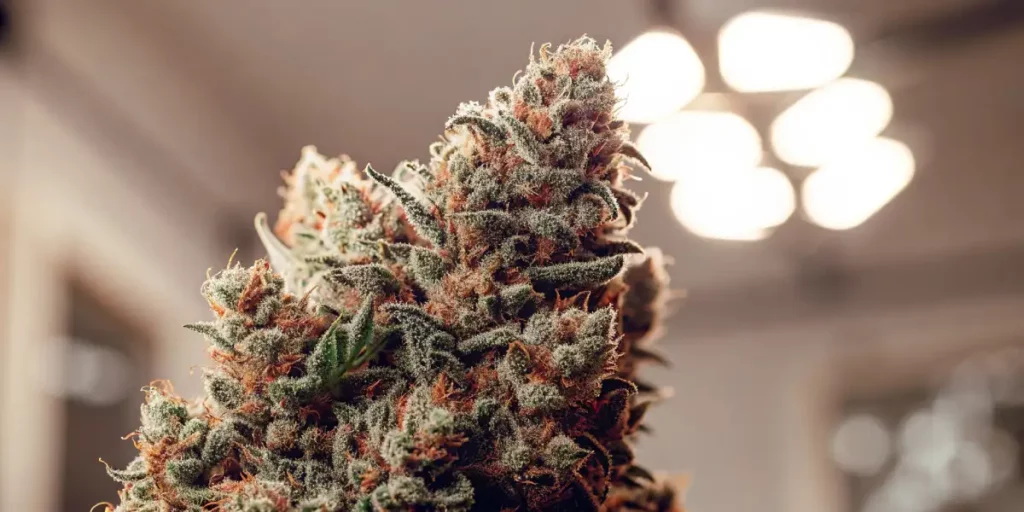
Is Cheese Autoflower Indica or Sativa?
Cheese Autoflower is a mostly Indica hybrid, which means it offers relaxing effects typical of Indica strains while still delivering a subtle creative uplift. This makes it versatile for both medical and recreational users.
Similar Strains to Cheese Auto
Blue Cheese Auto: Known for its strong, cheesy aroma and medium THC levels, it offers relaxing and euphoric effects.
Critical Cheese Autoflower: This strain blends the classic Cheese flavor with enhanced yields and faster flowering times.
Strawberry Cheese Auto: A fruity twist on the Cheese genetics, providing uplifting effects and a sweet, fruity flavor profile.
Tips for Professional Growers
For professional growers, Cheese Autoflower offers a few distinct advantages, especially for commercial grows or limited-space setups. Professionals can maximize yields by using advanced training techniques such as low-stress training (LST) to increase light penetration and encourage even bud development. This is particularly effective with Cheese Autoflower since it remains relatively short but produces dense, heavy buds that benefit from maximum light exposure.
Additionally, optimizing the nutrient schedule can make a big difference in yield and potency. Professionals should monitor the pH levels closely and adjust their feeding based on real-time plant feedback, avoiding nutrient burn or lockout. Proper pruning techniques, especially removing lower branches that don’t receive adequate light, can also direct more energy to the top buds for higher-quality harvests.
Lastly, Cheese Autoflower is perfect for professionals looking to maximize turnaround time. With a lifecycle of 10-12 weeks from seed to harvest, it allows for multiple harvests per year, ideal for commercial production or growers working in limited growing seasons.
Why Buy Cheese Autoflower
There are several reasons why Cheese Autoflower is a must-have strain for cannabis enthusiasts and growers alike. It offers the classic Cheese aroma and flavor profile that many users love, combined with the convenience of autoflowering genetics. With its moderate THC levels, it provides a balanced experience that suits both medicinal and recreational users.
For growers, Cheese Auto is easy to cultivate and highly resilient, making it a great choice for beginners. Its ability to flower automatically without the need for light cycle manipulation makes it ideal for those who want a fast-growing strain with reliable results. Additionally, the strong aroma, coupled with its energizing and uplifting effects, ensures that the final product is of top quality.
Problems in Cultivating Cheese Autoflower
While Cheese Autoflower is generally robust and easy to grow, it’s not without its challenges. One common issue is its strong odor during the flowering phase. Growers need to invest in proper odor control measures, such as carbon filters, to avoid the scent spreading beyond the grow room.
Another potential problem is overfeeding. Autoflowering strains like Cheese Auto are more sensitive to nutrients, so it’s important to follow a moderate feeding schedule. Beginners, in particular, may tend to overfeed their plants, leading to nutrient burn or imbalances.
Additionally, like all cannabis plants, Autoflowering Cheese is susceptible to pests and diseases, especially in outdoor grows. Regular monitoring and preventive measures, such as introducing beneficial insects or using organic pest control sprays, can help mitigate these risks. Lastly, since Cheese Auto Strain produces dense buds, it’s important to maintain good airflow and keep humidity levels in check to prevent mold or mildew.
FAQs
What is the THC content of Cheese Autoflower?
Cheese Autoflower typically has THC levels between 10% and 15%, making it a moderate-potency strain suitable for both beginners and experienced users.
How long does Cheese Autoflower take to grow?
From seed to harvest, Cheese Autoflower usually takes about 10-12 weeks. This makes it a relatively fast-growing strain, ideal for multiple harvests in a year.
Is Cheese Autoflower a good strain for beginners?
Yes, Cheese Autoflower is an excellent strain for beginners due to its ease of cultivation, resilience to common pests and diseases, and autoflowering genetics that simplify the growing process.
What are the effects of Cheese Autoflower?
Cheese Autoflower provides uplifting and energetic effects, along with a sense of relaxation. It’s perfect for daytime use, as it promotes creativity and euphoria without overwhelming sedation.
How can I control the smell when growing Cheese Autoflower?
Due to its strong aroma, using carbon filters or growing outdoors in a well-ventilated area are effective ways to control the pungent smell that Cheese Autoflower produces during flowering.

